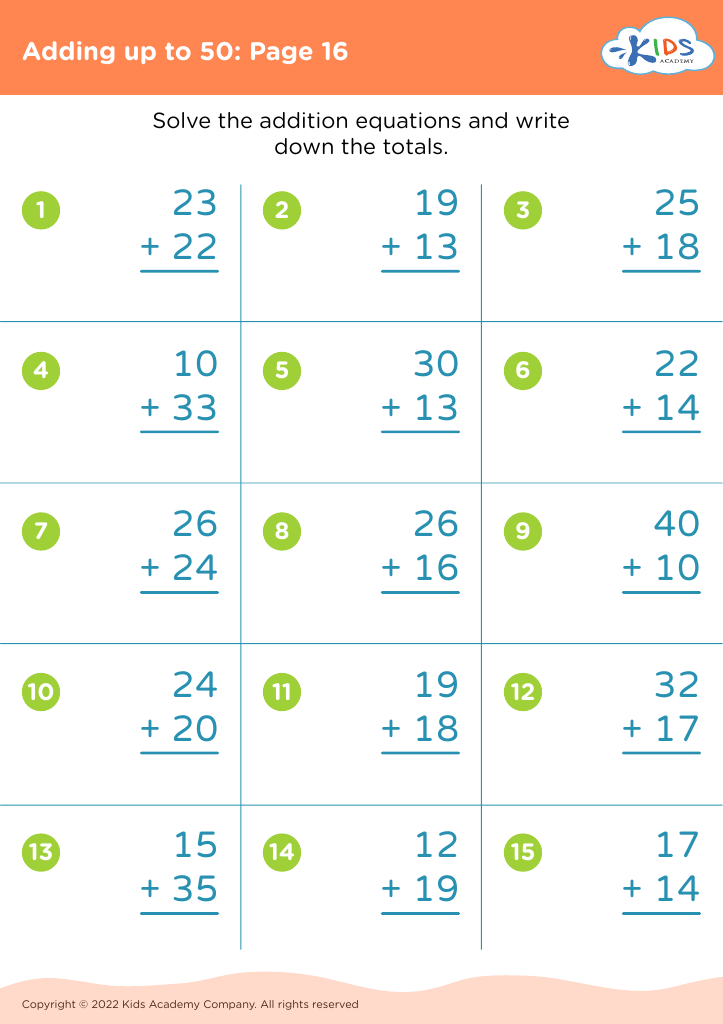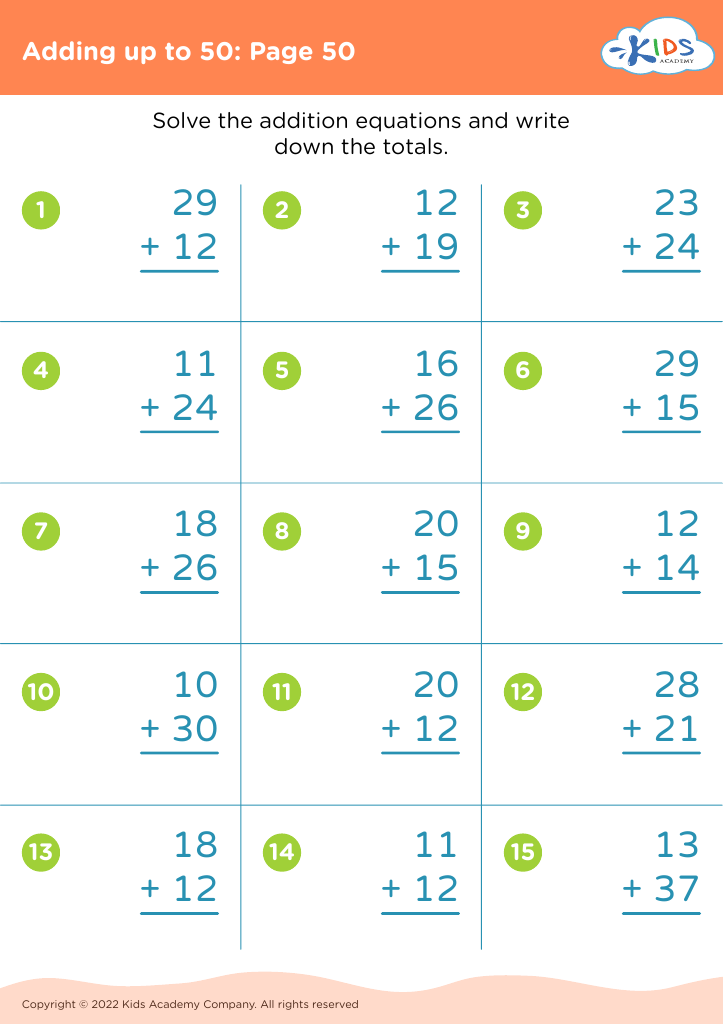Reading clocks Addition Worksheets for Ages 3-8
3 filtered results
-
From - To
Enhance your child's understanding of time with our engaging Reading Clocks Addition Worksheets, designed for ages 3-8. These interactive resources combine the essential skill of reading clock faces with fun addition problems to foster early math skills. Perfect for young learners, these worksheets feature colorful visuals and age-appropriate challenges that make learning enjoyable. Children will practice identifying times while solving addition problems, reinforcing critical thinking and comprehension in a playful environment. Whether used at home or in the classroom, our worksheets provide a wonderful opportunity for kids to master time-telling and math skills simultaneously. Start your child's learning adventure today!
Reading clocks and understanding time are essential skills that benefit children from a young age. For parents and teachers of children aged 3-8, focusing on reading clocks not only helps with basic math skills through the concept of addition but also fosters independence and responsibility. Learning to tell time is a foundation for developing self-regulation, as children begin to understand the link between actions and time management.
Additionally, reading clocks introduces children to critical thinking and problem-solving. Combining time with addition—such as determining how much time has passed or how long an activity will take—encourages mental agility and reinforces math concepts in a real-world context. These experiences can enhance children’s confidence in both mathematics and everyday decision-making.
Engaging children with interactive activities, games, and storytelling, parents and teachers can make learning to read clocks fun and meaningful. By cultivating this skill early on, children are better equipped for future academic challenges and life choices. Ultimately, teaching time management and mathematical concepts through reading clocks helps them establish essential life skills, encouraging them to navigate their environments with greater ease and confidence as they grow.
























